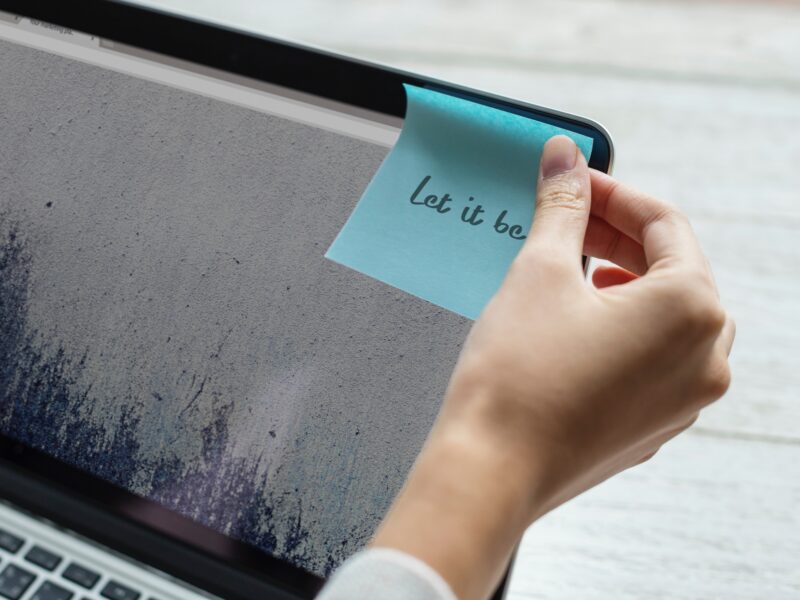In today’s demanding and fast-paced world, stress is a constant companion for many. While a certain amount of stress can be motivating and drive us to achieve our goals, chronic stress can take a toll on our physical and mental health. Learning to manage stress effectively is crucial for maintaining balance and achieving success in our personal and professional lives. This comprehensive guide explores practical strategies to help you de-stress and thrive in modern life.

Understanding Stress and Its Impact
Before diving into stress management strategies, it’s essential to understand what stress is and how it affects us. Stress is the body’s natural response to perceived threats or demands. When faced with a stressful situation, our body releases hormones like cortisol and adrenaline, preparing us for a “fight or flight” response. While this response is crucial for survival, prolonged exposure to stress can lead to physical and mental health issues such as anxiety, depression, cardiovascular diseases, and weakened immune function.
Recognizing the signs of stress, such as irritability, fatigue, difficulty concentrating, and physical symptoms like headaches or muscle tension, is the first step in managing it effectively. Let’s explore some practical strategies to help you de-stress and achieve success in modern life.
Mindfulness Practices
Mindfulness is the practice of being fully present and engaged in the current moment. It involves observing your thoughts, feelings, and sensations without judgment. Incorporating mindfulness practices into your daily routine can significantly reduce stress levels and improve overall mental health.
1. Meditation
Meditation is a powerful tool for stress reduction. Regular practice helps calm the mind, enhance focus, and promote emotional regulation. Techniques such as mindfulness meditation, guided imagery, and loving-kindness meditation can be incorporated into your daily routine. Even a few minutes of meditation each day can lead to significant benefits over time.
2. Deep Breathing Exercises
Deep breathing exercises, such as diaphragmatic breathing, can activate the body’s relaxation response. By taking slow, deep breaths, you can reduce your heart rate, lower blood pressure, and decrease cortisol levels. Practices like the 4-7-8 breathing technique or box breathing can be easily integrated into daily activities to manage stress.
3. Mindful Movement
Activities like yoga and tai chi combine physical movement with mindful awareness. These practices promote relaxation, improve flexibility, and enhance mental clarity. Engaging in mindful movement regularly can help reduce stress and improve overall well-being.
Physical Activities
Physical activity is a natural stress reliever that boosts mood and energy levels. Exercise stimulates the release of endorphins, which are natural mood elevators. Incorporating physical activities into your daily routine can significantly reduce stress and improve overall health.
1. Aerobic Exercise
Activities like running, cycling, swimming, and brisk walking increase heart rate and promote cardiovascular health. Aerobic exercise is particularly effective in reducing anxiety and depression, improving sleep quality, and boosting overall mood.
2. Strength Training
Resistance training, such as lifting weights or using resistance bands, helps build muscle strength and endurance. It also improves mental resilience and reduces symptoms of anxiety and depression. Incorporating strength training exercises into a regular fitness routine can enhance physical and mental well-being.
3. Recreational Activities
Engaging in recreational activities that bring joy and relaxation, such as dancing, hiking, or playing sports, can provide a break from daily stressors. These activities promote social interaction, enhance mood, and provide a sense of accomplishment.
Time Management Techniques
Effective time management is essential for reducing stress and increasing productivity. By organizing tasks and prioritizing responsibilities, you can manage your workload more efficiently and avoid the overwhelming feeling of being constantly behind.
1. Prioritization
Prioritizing tasks based on their importance and urgency can help you focus on what truly matters. Tools like the Eisenhower Matrix can be useful for distinguishing between urgent and important tasks and delegating or eliminating less critical activities.
2. Planning and Scheduling
Creating a daily or weekly schedule can provide structure and clarity. Allocating specific time blocks for tasks, breaks, and leisure activities helps manage time effectively and prevents procrastination. Tools like planners, calendars, and time management apps can assist in staying organized.
3. Time Blocking
Time blocking involves dividing the day into blocks of time dedicated to specific activities or tasks. This technique helps maintain focus and productivity by minimizing distractions and multitasking. By setting clear boundaries for work, leisure, and rest, you can achieve a better work-life balance.
4. Setting Realistic Goals
Setting achievable goals and breaking them down into smaller, manageable tasks can reduce the feeling of being overwhelmed. Celebrating small accomplishments along the way can boost motivation and provide a sense of progress.
Healthy Lifestyle Choices
Adopting a healthy lifestyle is crucial for managing stress and promoting overall well-being. Nutritional choices, sleep hygiene, and self-care practices all play a significant role in reducing stress levels.
1. Balanced Diet
A balanced diet rich in fruits, vegetables, whole grains, lean proteins, and healthy fats provides essential nutrients that support physical and mental health. Avoiding excessive caffeine, sugar, and processed foods can prevent mood swings and energy crashes. Staying hydrated is also essential for maintaining optimal body function and reducing stress.
2. Sleep Hygiene
Quality sleep is fundamental for stress management and overall health. Establishing a regular sleep routine, creating a comfortable sleep environment, and avoiding electronic devices before bedtime can improve sleep quality. Aim for 7-9 hours of sleep per night to ensure adequate rest and recovery.
3. Self-Care Practices
Self-care involves engaging in activities that promote physical, emotional, and mental well-being. This can include hobbies, relaxation techniques, spending time in nature, or simply taking time for oneself. Regular self-care helps recharge the mind and body, making it easier to cope with stress.
4. Limiting Substance Use
Reducing the intake of alcohol, nicotine, and other substances can have a positive impact on stress levels. These substances may provide temporary relief but can exacerbate stress and anxiety in the long run.
Social Connections
Social support is a critical factor in managing stress and enhancing mental health. Strong social connections provide a sense of belonging, reduce feelings of isolation, and offer emotional support during challenging times.
1. Building Relationships
Cultivating meaningful relationships with family, friends, and colleagues can provide a reliable support network. Regular communication and spending time with loved ones foster emotional connections and create a sense of community.
2. Seeking Support
When dealing with stress, reaching out for support can make a significant difference. Talking to a trusted friend, family member, or mental health professional can provide valuable perspective and guidance. Joining support groups or engaging in community activities can also offer a sense of belonging and shared experiences.
3. Practicing Empathy and Compassion
Showing empathy and compassion towards others can enhance social bonds and create a supportive environment. Acts of kindness and understanding not only benefit others but also contribute to one’s own sense of well-being and fulfillment.
4. Digital Detox
While technology provides ways to stay connected, it can also contribute to stress. Taking regular breaks from digital devices and social media can reduce information overload and promote more meaningful interactions.
Integrating Strategies into Daily Life
Effectively managing stress requires a holistic approach that integrates various strategies into daily life. Here are some practical tips for incorporating these stress-reducing techniques:
1. Create a Routine
Establishing a daily routine that includes mindfulness practices, physical activities, healthy meals, and social interactions can provide structure and predictability. Consistency in these activities helps reinforce positive habits and reduces stress.
2. Set Boundaries
Setting clear boundaries between work and personal life is crucial for maintaining a healthy balance. Designating specific times for work, relaxation, and leisure activities prevents burnout and promotes overall well-being.
3. Practice Gratitude
Regularly practicing gratitude by acknowledging and appreciating positive aspects of life can shift focus away from stressors. Keeping a gratitude journal or expressing gratitude to others can enhance mood and reduce stress.
4. Stay Flexible
While routines and plans are important, it is equally essential to remain flexible and adaptable. Life is unpredictable, and being able to adjust to changes and setbacks with a positive attitude can help manage stress more effectively.
5. Continuous Learning
Continuously learning and adapting stress management techniques based on personal experiences and feedback can lead to more effective strategies. Being open to new approaches and willing to experiment can help identify what works best for individual needs.
Conclusion
Stress is an unavoidable aspect of modern life, but it does not have to dictate your overall well-being. By adopting practical strategies such as mindfulness practices, physical activities, effective time management, healthy lifestyle choices, and nurturing social connections, you can significantly reduce stress and enhance your quality of life. Integrating these strategies into daily routines fosters resilience, promotes mental and physical health, and ultimately contributes to success in personal and professional endeavors. By prioritizing stress management and self-care, you can navigate the challenges of modern life with greater ease and achieve a balanced and fulfilling life.
Remember, the key to managing stress effectively is consistency and persistence. Start incorporating these strategies into your daily life, and you’ll begin to notice a positive shift in your overall well-being. De-stress for success and embrace a healthier, happier you.










